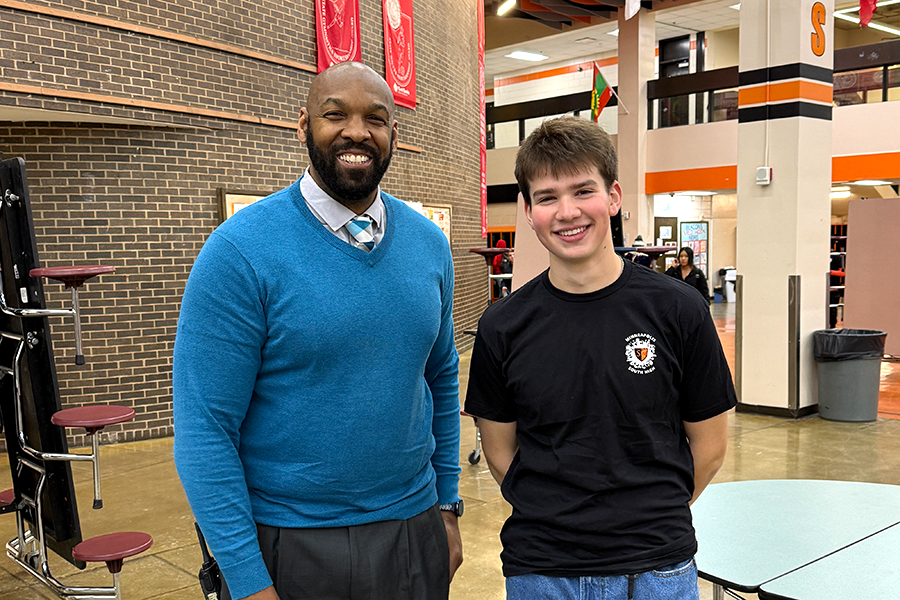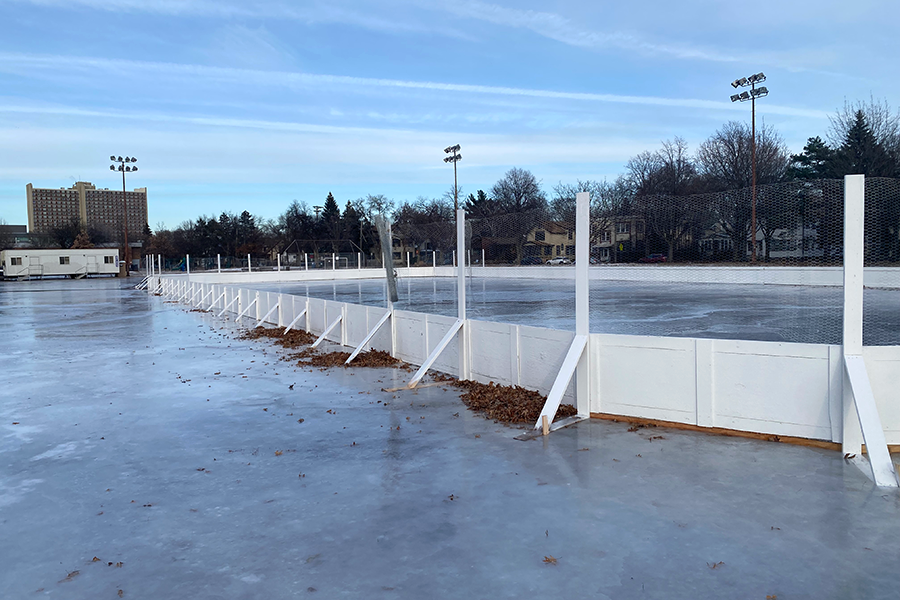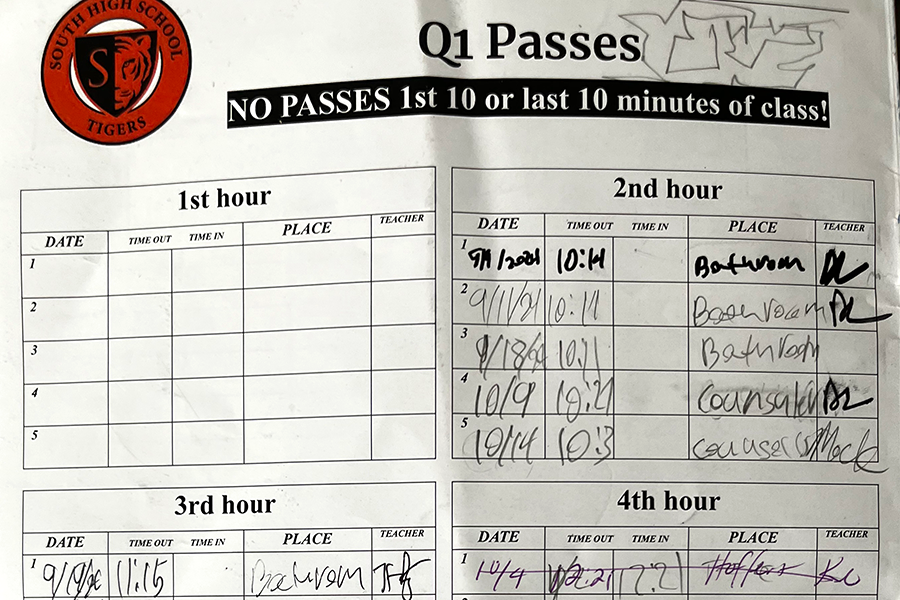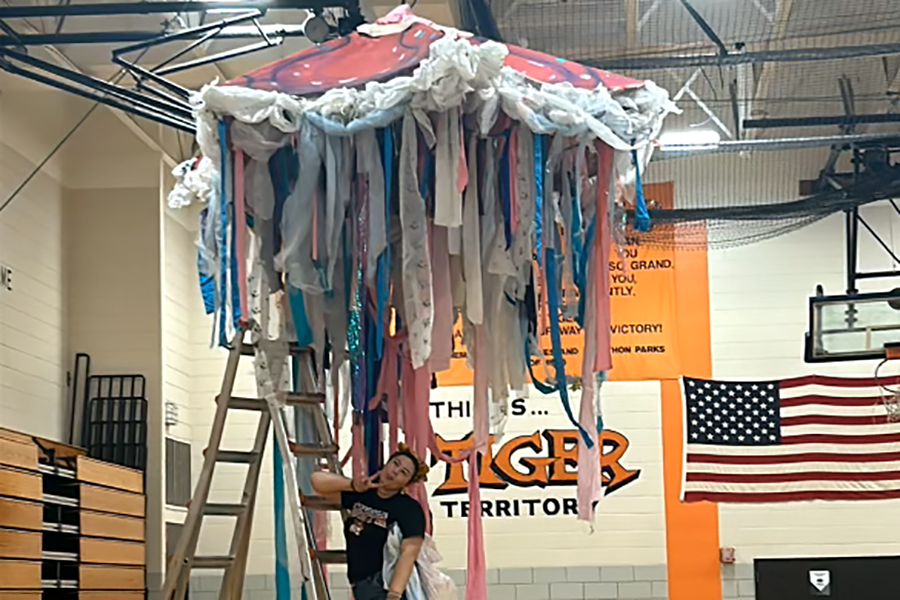Principal Cecilia Sadler said, “The feedback from them was it went really well. That we opened our doors was refreshing, because seeing [the program] on paper is different from seeing it in action.”
An incredible amount of South students are enrolled in AP classes. The main reason for this phenomena is the recent decision to make AP US History (APUSH) mandatory. Sadler said, “One of the things that’s talked about AP courses is giving students a taste of college courses. I see that some students may have not chosen that to begin with, but once they get a taste they ask for more.”
APUSH teacher Brian FitzGerald echoed this sentiment. “People suffer through APUSH and realize it’s a doable challenge and then choose to challenge themselves in English their junior year.”
Phylis Hayes can’t remember, but thinks she’s been teaching AP Literature and Composition for fourteen years. When she started, there were only two sections of AP Lit. “It was the very high level kids… college bound kids-ask now and everyone’s planning that, but 14 years ago it wasn’t like that.”
When FitzGerald started teaching at South, the AP program was much smaller. “I wouldn’t call it clandestine, but it wasn’t as easily accessible.”
AP classes have always had open enrollment. FitzGerald said, “it was always if a student wanted to take AP, let them. We’ve always said if students wanted to try taking a challenging
class, let them try.”
Sadler said one of the AP program’s strengths is that there is “access for all, for everyone to get in.” She appreciates how AP removes any fear of rejection.
South offers 14 different AP courses, filling up 53 sections each year.
This is the first year that South has offered two different AP English Classes: Literature and Composition, and Language and Composition.
Hayes said, “I love Literature and Composition. They’re [the students] more prepared to do well at a college level. it really does a good job of getting kids to function with the demands placed on them by their colleges and universities. I know it works because my former students have told me it does. This is a really good class to hone your communication skills. In all walks of life this is a skill you need to function in the 21st century.”
Tanya Hodge teaches AP Language and Comp, which 208 students are taking this year. She thinks it’s an exciting addition to South’s curriculum because it focuses on non-fiction writing. “As a whole we get caught in a place where it’s either fiction or the five paragraph essay. Learning more about rhetoric as a whole gives students more options,” she said.
Since last year AP English classes have added an online component using the Moodle, which the visitors were shown a presentation about. Moodle is an educational social network where students post logs about their readings and comment on each other’s thoughts. Sadler said, “we were able to see students engaging in a dialogue before they got into class. It got multiple sections of the class to mingle.”
Hodge, who uses moodle in her teaching said, “it levels the playing field. Moodle is being used through universities. I want them [the students] to get the tools now. This is the 21st century. We’re moving. This is a chance for students to learn responsible use.” She thinks it’s an opportunity to learn “how to use acedemic rhetoric on an online forum in an acedemic setting.”
AP Language and Comp is new this year and AP Geography was added last year as a semester-long class. More AP additions are certainly not out of the question. FitzGerald said, “It would be beneficial if we could add AP or CIS classes to the social sciences.”
The addition of AP classes could also have some potential downsides. Hodge thinks that one of the reasons why South is offering more AP classes is because it is a known quality. “The district is streamlining things. The big push is AP classes and standardized classes. Because AP has so many people taking it, electives get cut.” In the past South offered a larger variety of courses, with a greater emphisis on creative writing. These classes have been cut as more and more students choose AP English.
South not only has a large AP program, but a diverse one. This is in part a result of APUSH being mandatory, and therefore reflecting South’s overall diversity. But it is also a part of a larger change. Hodge said, “Looking back on the diversity–When I started twelve years ago it was a lot of white students taking AP,” but in the past two years, “the classes I’ve taught are pretty diverse.”







